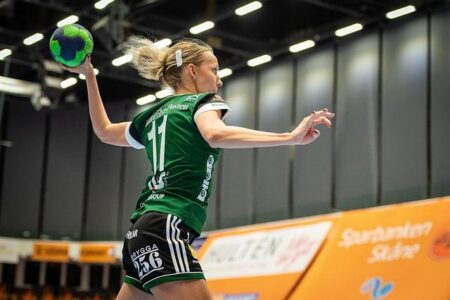New research continues to highlight the critical role of sleep in athletic performance and recovery, reshaping how athletes and coaches approach training regimens. According to the Sleep Foundation, quality rest is not just a luxury but a fundamental component that enhances physical endurance, cognitive function, and injury prevention. As sports professionals seek every possible edge, understanding the science behind sleep’s impact could redefine preparation and recovery strategies across all levels of competition. This article explores the latest findings on how sleep influences athletic success and offers insights into optimizing rest for peak performance.
The Crucial Link Between Sleep Quality and Athletic Performance
Elite athletes consistently emphasize that recovery is just as important as training, and sleep plays a pivotal role in this balance. During deep sleep stages, the body secretes growth hormone, which aids muscle repair, tissue growth, and overall recovery. Insufficient or fragmented sleep disrupts this process, leading to decreased strength, slower reaction times, and impaired cognitive functions critical for strategy and endurance. Moreover, poor sleep can elevate cortisol levels- the body’s primary stress hormone- which negatively impacts muscle gain and immune function.
Recent studies have highlighted key benefits linked to prioritizing quality sleep in training regimens:
- Improved Reaction Time: Faster decision-making crucial for competitive performance.
- Enhanced Muscle Recovery: Reduced inflammation and accelerated tissue repair.
- Optimized Energy Metabolism: Better regulation of glucose and fat for sustained endurance.
- Increased Mental Resilience: Greater focus and reduced perception of fatigue.
| Sleep Duration | Performance Impact | Recovery Rate |
|---|---|---|
| 7 hours | Moderate decline in alertness | Standard recovery time |
| 8-9 hours | Peak cognitive & physical function | Optimal tissue restoration |
| Less than 6 hours | Significant decrease in performance | Prolonged recovery and injury risk |
How Sleep Enhances Muscle Recovery and Reduces Injury Risk
During sleep, the body enters a critical phase of muscle repair and growth, driven primarily by the release of growth hormone. This hormone stimulates protein synthesis, which is essential for rebuilding muscle fibers that have been stressed during intense physical activity. Additionally, deep sleep stages allow for efficient removal of metabolic waste and inflammation in muscle tissues, accelerating recovery times and enhancing overall athletic performance. Athletes who consistently prioritize quality sleep experience faster healing and fewer setbacks caused by muscle fatigue.
Beyond just repair, adequate rest plays a crucial role in injury prevention. Sleep deprivation impairs cognitive function, reaction time, and motor skills, increasing the likelihood of accidents and muscle strains during training or competition. Below is a breakdown of sleep’s impact on key recovery factors:
| Recovery Factor | Effect of Adequate Sleep |
|---|---|
| Muscle Protein Synthesis | Increased for faster repair |
| Inflammation Reduction | Enhanced clearance of inflammatory molecules |
| Cognitive Function | Improved focus and reaction time |
| Risk of Injury | Decreased due to better motor coordination |
- Consistent sleep schedules promote sustained recovery.
- Deep sleep stages are vital for hormone release.
- Sleep deprivation correlates with higher injury rates.
Optimizing Sleep Routines for Peak Training and Competition
Achieving consistent and restorative sleep is essential for athletes aiming to maximize their physical capabilities and accelerate recovery. Strategically aligning sleep patterns with training schedules helps the body repair muscle fibers, consolidate motor skills, and regulate hormone levels vital for energy and growth. Establishing a pre-sleep routine-such as dimming lights, avoiding screens at least an hour before bed, and engaging in relaxation techniques like deep breathing or meditation-can significantly enhance sleep quality. Additionally, prioritizing a dark, cool, and quiet environment reduces disruptions, enabling uninterrupted cycles of deep and REM sleep that are crucial for mental sharpness and physical endurance during high-stakes competitions.
Integrating simple habits into daily routines empowers athletes to optimize their rest effectively:
- Consistent bedtime and wake-up times ensure the body’s internal clock is in harmony with training demands.
- Limiting caffeine and heavy meals hours before sleep minimizes digestive discomfort and stimulant effects.
- Power naps (20-30 minutes) can supplement nighttime rest without interfering with sleep cycles.
| Time of Day | Recommended Action | Benefit |
|---|---|---|
| 1 hour before bedtime | Turn off screens; dim lights | Reduces blue light exposure, promoting melatonin release |
| 30 minutes before bedtime | Engage in calming activities | Prepares mind and body for restful sleep |
| Upon waking | Get natural sunlight exposure | Resets circadian rhythm; boosts alertness |
Expert Tips for Improving Sleep to Boost Athletic Success
Optimal sleep is a game-changer for athletes looking to enhance both performance and recovery. Experts highlight the importance of maintaining a consistent sleep schedule, emphasizing that going to bed and waking up at the same time daily helps regulate the body’s internal clock. Additionally, creating a cool, dark, and quiet sleep environment can significantly improve sleep quality, allowing muscles to repair and the brain to consolidate critical motor skills. Athletes are also encouraged to limit screen time before bed, as the blue light emitted from devices can disrupt melatonin production, delaying the onset of restorative deep sleep.
Nutrition and hydration play an integral role in preparing the body for restful sleep. Consuming a balanced diet rich in magnesium and tryptophan supports natural sleep cycles, while avoiding caffeine or heavy meals close to bedtime minimizes disturbances. Incorporating relaxation techniques such as mindfulness meditation or deep breathing exercises can further ease the transition into sleep, promoting faster recovery. Below is a quick-reference chart outlining key actions for better sleep and their impact on athletic outcomes:
| Sleep Strategy | Benefit for Athletes |
|---|---|
| Consistent Sleep Schedule | Enhanced muscle recovery and alertness |
| Dark, Cool Sleep Environment | Improved sleep efficiency and hormone regulation |
| Limit Evening Screen Time | Increased melatonin, faster sleep onset |
| Balanced Diet with Magnesium | Reduced muscle cramps, deeper sleep |
| Relaxation Techniques | Lowered stress, quicker recovery |
In Retrospect
In conclusion, the critical role of sleep in enhancing athletic performance and facilitating recovery cannot be overstated. As research highlighted by the Sleep Foundation confirms, athletes who prioritize quality rest not only improve their physical capabilities but also reduce injury risk and accelerate healing. With the competitive edge often resting on marginal gains, incorporating sound sleep strategies emerges as an essential component in any training regimen. As the sports world continues to evolve, one thing remains clear: the path to peak performance begins with a good night’s sleep.





